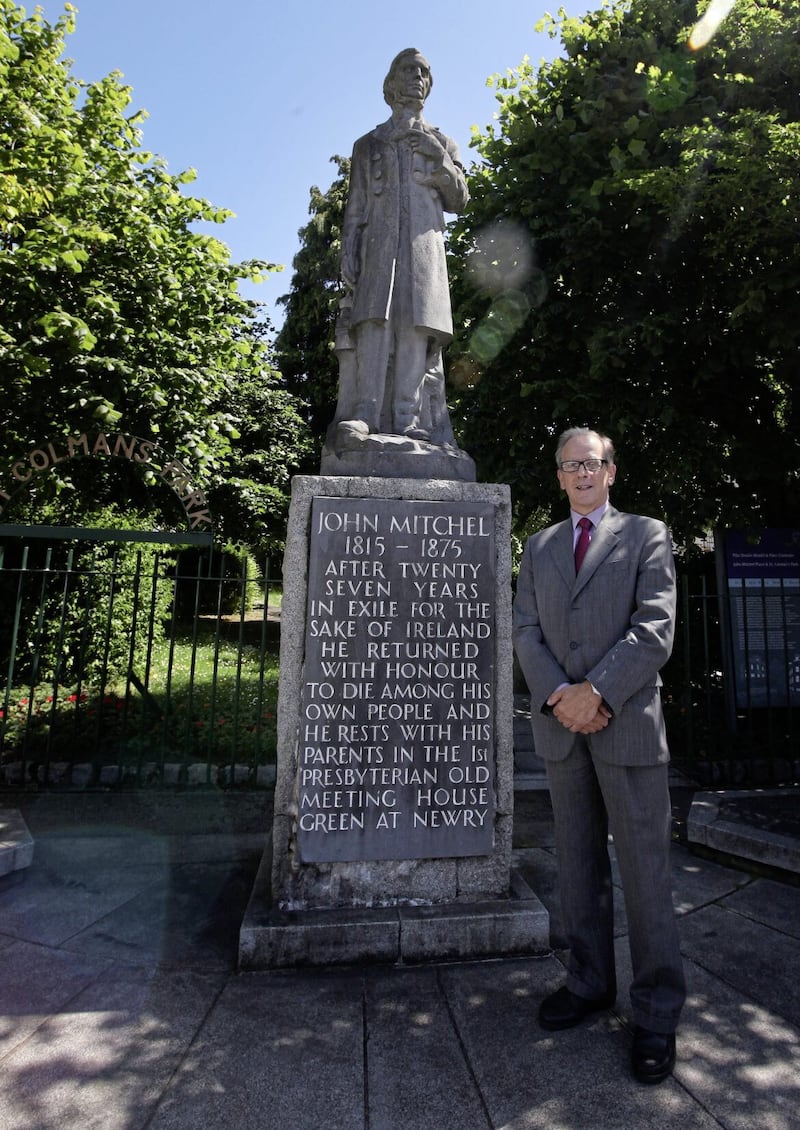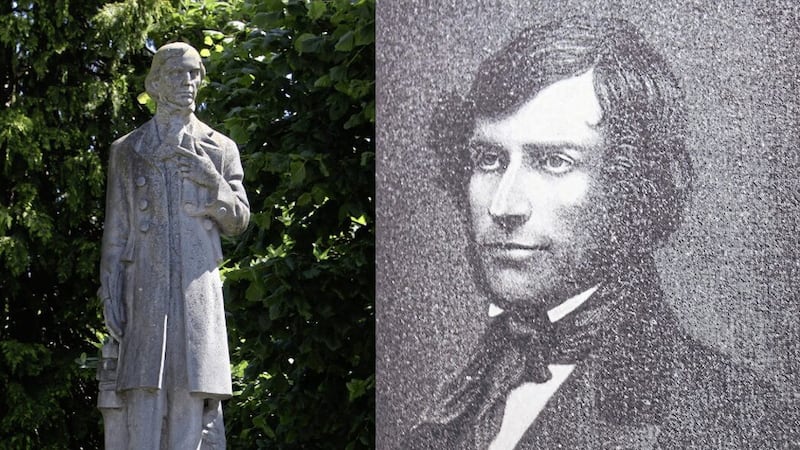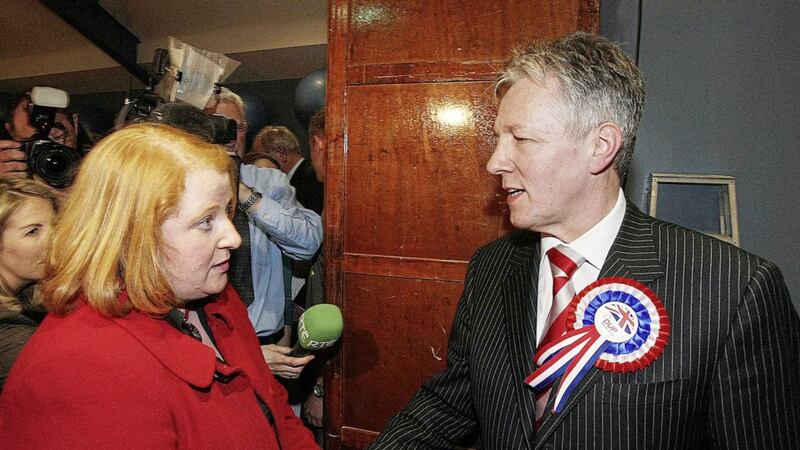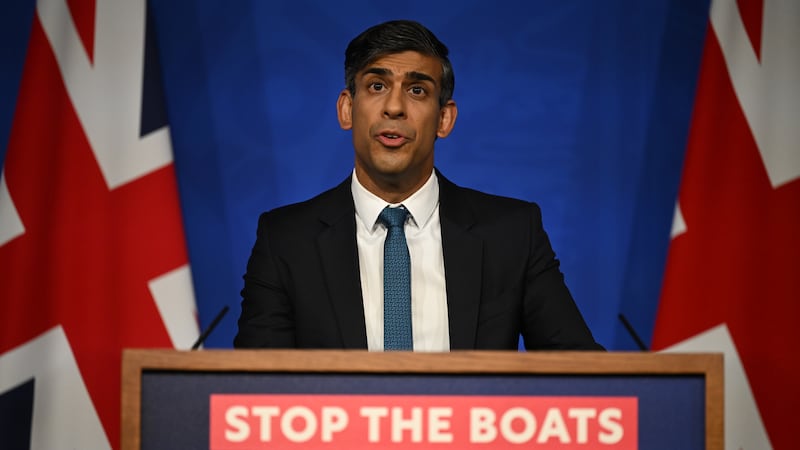THE respected commentator Fintan O'Toole is always worth reading and, in a column published in The Irish Times earlier this month, he raised issues concerning clubs of the Gaelic Athletic Association which are named after John Mitchel, the Irish nationalist and political journalist who came to prominence during the years of the Great Famine and beyond.
A number of hurling and Gaelic football clubs throughout the island have been named after him. O'Toole provides a list ranging from Belfast to Tralee and from Castlebar to Newry, where there is also a Mitchel statue. The nine locations also include Solihull, outside Birmingham.
John Mitchel was born at Camnish, near Dungiven, County Derry in 1815, son of a Presbyterian minister of the same name, who later became a Unitarian, and his wife Mary. The family moved to Newry and in due course young Mitchel attended Trinity College Dublin, graduating in 1836.
He returned to Newry as an apprentice attorney where he met and married Jenny Verner in Drumcree parish church, which has been the starting point of Orange Order marches that became the focus of controversy in more recent times.
Mitchel practised as a lawyer with a Newry colleague and, increasingly angered at the treatment of local Catholics, regularly clashed with Orange magistrates. He subscribed to The Nation newspaper and met Charles Gavan Duffy, one of its founders, who introduced him to Thomas Davis and John Blake Dillon. When Davis died in 1845, Mitchel became assistant editor of the publication.
Moving to Dublin in 1845, he became a leader of the Young Ireland movement and, because of Duffy's absences due to poor health, assumed full editorial responsibility at The Nation. His sharp and forceful critiques of the British administration in Ireland gave a more strident tone to the paper. When the Great Famine began to take hold at the time, he wrote that insurrection rather than starvation should be the path taken by nationalists
As the Famine turned into a massive crisis, Mitchel wrote that shiploads of food were departing from Ireland while the common people starved and that there was a deliberate policy of exterminating the Irish peasantry. He resigned from The Nation in December 1847 and set up a new weekly paper, The United Irishman, which called for an insurrection and urged Ulster Protestants to join the revolt against British rule.
Mitchel's writings led to his prosecution under the Treason Felony Act and, following a three-day trial at the then-notorious Green Street courthouse, he was found guilty by a packed jury. Having received a sentence of 14 years' transportation, he was taken away to Bermuda where he served two years before being moved on to Van Diemen's Land (now Tasmania), an island off the Australian coast.
He escaped in 1853, ending up in New York where he published The Citizen, a weekly paper that included his prison memoirs which were later published as the hugely-influential book titled Jail Journal. He continued to attack the British empire but an article he wrote, arguing that plantation slaves were better off in places like Alabama than under desperate conditions in Africa, got him into trouble with the abolitionists in New York.
He sold The Citizen paper and left New York in March 1855, moving to Tennessee where he published the Southern Citizen, defending states' rights and promoting slavery. When the Civil War broke out, his three sons joined the Confederate army and two of them were killed in battle: William, who was in his late teens, at Gettysburg and John, in his mid-twenties, at Fort Sumter. His son James, who became a captain, was badly wounded twice but survived. Mitchel himself served with an ambulance corps.
After the Confederates were defeated, Mitchel continued his involvement in journalism and was active in the politics of the Fenian movement. Back home, he won a Tipperary by-election to the House of Commons in February 1875 but was declared ineligible because of his status as an undischarged felon.
On March 11, another poll was held in the constituency and he won the seat a second time by a strong margin. He intended to keep on contesting but his health was in serious decline and he died on March 20 1875.
His support for slavery, which did not receive that much attention in former times, has greatly diminished Mitchel's standing among modern Irish nationalists but other aspects of his outlook had a strong influence in the past, not least on the leader of the 1916 Rising, Patrick Pearse.
Urging the GAA clubs to delete Mitchel from their name, Fintan O'Toole writes: "Continuing to honour a fanatical racist through the names of some clubs dishonours the GAA’s immensely important achievement in breaking the chains that bind Irish local and national identities to toxic notions of racial superiority. It literally gives good clubs a bad name."

In a column for this newspaper some time back, I referred to similar issues regarding the John Mitchel statue in Newry. Having visited that memorial shortly beforehand, I observed that a nearby notice-board gave some details of Mitchel's life and in my column I suggested that "surely a note could be added to say that his efforts on behalf of the people of Ireland are being honoured, not his support for slavery and the Confederacy".
I am not aware that anyone has acted on my advice as yet, but it's never too late. Something similar could perhaps be done with the GAA club titles.
Why not add a name to Mitchel's: maybe someone like Daniel O'Connell, whose opposition to slavery was exemplary. Or what about Nelson Mandela, whom I saw in Croke Park at the Special Olympics ceremony in 2003? A title like the Mitchel-Mandela club would have a nice ring to it.








